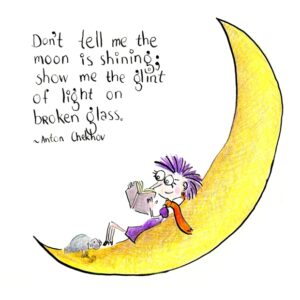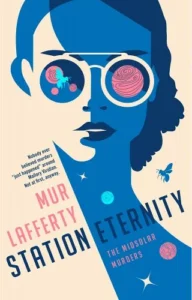The Best Writing Advice I’ve Ever Recieved

This blog topic was suggested by Brian C. E. Buhl. Hi Brian!
I hesitate to dispense writing advice on this blog, since I’m not the most widely-known and widely-quoted of writers myself. Plenty of writers are out there, giving plenty of writing advice, and who am I to add my voice to the chaos?
And writing advice is so subjective as well. Chuck Wendig says that all writing advice is bullshit, after all. Though he’s written plenty of books on the craft of writing, it all, he says, boils down to two things: Writers write, and they finish what they write. So I guess that counts as the best writing advice I’ve received: Writers write, and they finish what they write. All the rest is bullshit and dross.
Nevertheless, there’s other advice out there that’s good and that’s bad, so let’s look at a couple of those pieces of advice.
Show, don’t tell. This piece of advice basically says that you should always show what’s going on in your story, showing the characters and their feelings, and so on, rather than simply saying it. So, for example, instead of saying, “Rob felt angry,” you should write, “Rob felt hot rage stir through his body” or something like that. But is this always the best approach? I argue that it is not. There are times when it’s best to simply state what’s going on in a scene, and move on. To show in detail every single aspect of a scene can become laborious and difficult for the reader.
Write what you know. This piece of advice is a cliche, and a dangerous one at that. It’s also a cliche to hate on this piece of advice, and to dismiss it entirely. When I was a kid, I was told I should pass on writing my epic fantasy trilogy and stick to writing “what I know”, but I wasn’t sure what that was supposed to be. I was in junior high at the time; should I have therefore written about junior high kids and the struggles they went through? I didn’t think so, because what I was going through at the time was pretty dull, in my opinion, and didn’t make for interesting reading.
In short: if we only write what we know, we won’t have stories about spaceships, elves, talking trees, and so on. Lord knows that snippet of advice stopped me from writing my story about a mad scientist who traveled in time in a time machine created in a VW bug, twenty years before Back to the Future.
Still, I think it’s worthwhile to unpack this bit of advice. Write what you know. Does it make sense to write about a serial killer when you’ve never been one? Well… We’ve all felt the sort of anger and rage that have led us to hate someone, even if that anger and rage haven’t extended to the desire to kill that person. Could we extrapolate, though, from our own experience and emotions to something entirely outside of our own experience? I think we can. I think it’s possible. And I think it’s important, as writers, that we do so.
So there you have it. The best advice I’ve gotten, and the worst.
I’ve only had twenty minutes to write this blog post. Let’s hope tomorrow’s is more coherent.
Today’s book recommendation is Station Eternity by Mur Lafferty. I loved this book, and Mur is an excellent writer and mentor. This novel, which is touted as Murder, She Wrote meets Babylon Five, is a genuine delight. Get your copy now!

I think with regards to “show, don’t tell,” I think there’s a better way to describe it. The first step in Michael Gallowglas’s “4 Steps” is “make it experiential.” Or maybe it’s the second step, and the first is “be specific”? It’s actually both.
Rob stomped across the room, his nostrils flaring as he stared at the closed door.
I generally like the advice of “show, don’t tell” but I also agree that it isn’t always the way. The act of “telling” is just another tool in the writer’s toolbox. When the time comes to use it, we shouldn’t be afraid.
And yeah… “write what you know” requires a lot more unpacking.
Don’t be afraid to offer advice. Chuck’s full quote is, “Writing advice is bullshit… but bullshit fertilizes.”